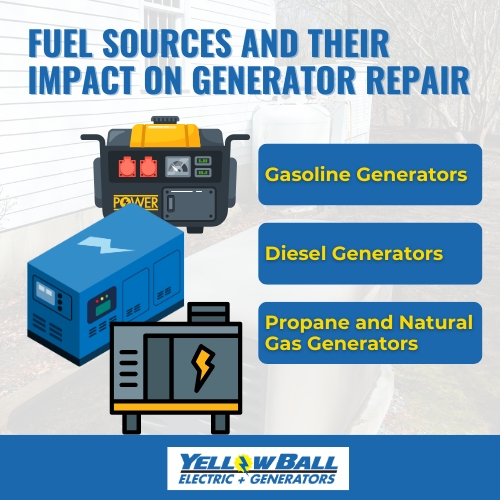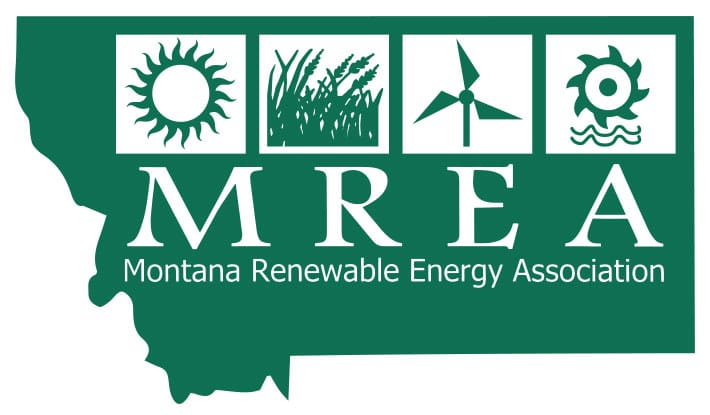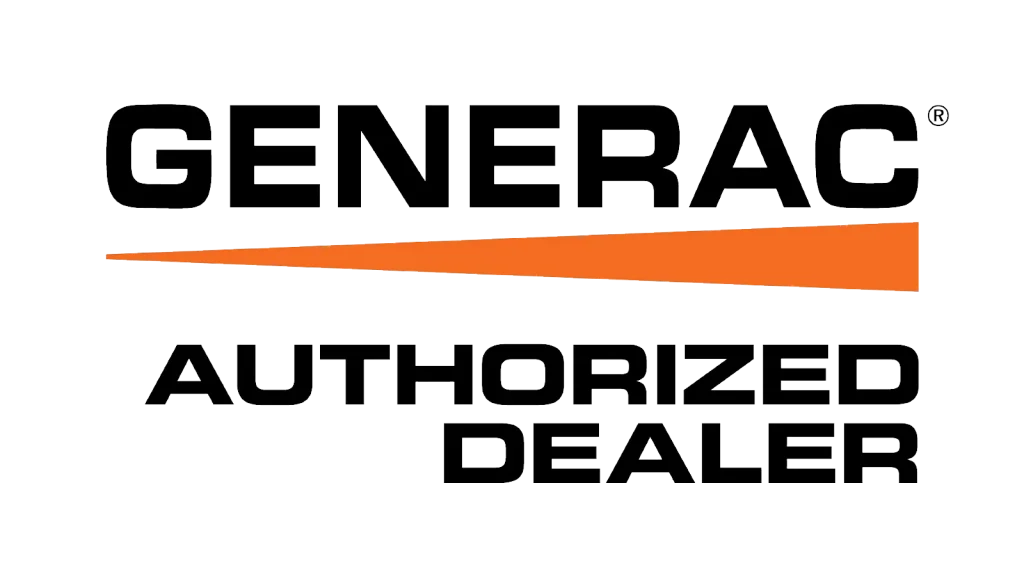A generator is essential during power outages, providing reliable backup power. However, like any machine, it requires regular generator repair and maintenance to function efficiently.
Whether you are a homeowner, business owner, or property manager in Montana, understanding how to maintain and repair your generator is crucial.
This guide covers everything you need to know about generator repair, from routine maintenance tips to troubleshooting common issues.
By following these recommendations, you can extend your generator’s lifespan and ensure it performs when you need it most.
Looking for reliable backup power solutions? YellowBall Electric + Generators has you covered!
Don’t let unexpected outages catch you off guard—contact YellowBall Electric + Generators today for a consultation and take the first step toward uninterrupted, efficient, and sustainable power.
Understanding Your Generator: The First Step in Generator Repair
Before starting any generator repair process, it is important to understand the type of generator you own. The generator’s size, fuel source, and model influence both its maintenance needs and repair methods.
Types of Generators
Generators typically fall into two main categories:
Portable Generators
Portable generators are commonly used for homes and small businesses. They are often gasoline-powered, providing a flexible and cost-effective power source during outages.
However, due to their portability and frequent use, they generally require more regular generator repairs and maintenance.
Standby Generators
Standby generators are permanently installed and automatically activate during power outages. These units typically use natural gas or propane and can power larger areas.
Standby generators are more complex and often require professional servicing for repairs and maintenance.
 Fuel Sources and Their Impact on Generator Repair
Fuel Sources and Their Impact on Generator Repair
The type of fuel a generator uses significantly affects its maintenance schedule and repair needs:
- Gasoline Generators: Require frequent oil changes and air filter replacements. They are more prone to issues that may lead to generator repairs due to the volatility of gasoline.
- Diesel Generators: Often used in commercial settings, these generators have specific maintenance requirements, including regular fuel system inspections.
- Propane and Natural Gas Generators: These units typically need less frequent maintenance but require specialized knowledge for repairs.
Understanding your generator’s fuel type ensures you follow the correct maintenance procedures and can identify when generator repair services are necessary.
Common Generator Problems and DIY Generator Repair Tips
While some generator issues require professional repair, others can be resolved with basic troubleshooting. Here are common problems and how to address them:
Generator Won’t Start
If your generator fails to start, consider these potential causes:
- Check if the fuel valve is open and the tank has fuel.
- Inspect and replace the spark plug if it is damaged or worn.
- Examine the air filter and clean or replace it if dirty.
- Test the battery; it may need charging or replacement.
- Replace stale fuel, as old fuel can clog the system and prevent starting.
These troubleshooting steps can resolve most startup issues, reducing the need for professional generator repair services.
Generator Runs Rough
A generator that runs unevenly, surges, or stalls may indicate various issues:
- Replace stale fuel and remove debris from the fuel system.
- Inspect the wiring for damage that may disrupt power flow.
- Clean or replace the air filter if it is clogged, as this affects engine performance.
Addressing these issues promptly can prevent more serious repairs.
Generator Overloads
Overloading occurs when appliances connected to the generator exceed its wattage capacity. This can cause severe damage and require professional repairs. To avoid overloading:
- Do not exceed the generator’s wattage limit.
- Regularly inspect connected appliances for compatibility.
If overloading has already occurred, professional generator repair may be necessary to assess and fix the damage.
When to Call a Professional for Generator Repair
While DIY troubleshooting works for minor problems, some issues require professional expertise.
Complex Electrical Issues
Electrical problems, especially those involving wiring, should always be handled by licensed electricians. Improper handling of electrical components can be dangerous and may lead to more extensive damage, requiring costly generator repair.
Major Mechanical Failures
Serious issues such as fuel system malfunctions or engine part failures demand professional attention.
Experts have the tools and knowledge needed to diagnose and resolve these problems, ensuring the generator’s long-term functionality.
Routine Maintenance for Optimal Performance
Like any mechanical device, a generator performs best with regular maintenance. Routine tune-ups include:
- Oil changes and filter replacements
- Fuel system inspections
- Battery tests and cooling system checks
Regular maintenance reduces the risk of unexpected breakdowns and the need for extensive generator repair in the future.
How to Find the Right Professional for Generator Repair
Choosing the right professional for generator repair ensures that the job is done correctly and safely. Here’s how to find the best service provider:
Check Qualifications
- Look for technicians trained and certified in specific generator brands like Generac, Kohler, Onan, and Honda.
- Confirm that the provider is licensed and experienced in both residential and commercial generator repairs.
Research Reviews and Referrals
- Online reviews can help you find reliable providers. For instance, searching “generator installers Bozeman MT” can provide insights into local experts.
- Ask for references and check customer testimonials to ensure you are hiring a trusted technician.
Ask Key Questions
- Do they offer maintenance plans?
- Are they an approved pro for your generator brand?
- What warranty options are available for their generator repair services?
FAQs About Generator Repair
What is the most common generator problem?
Starting difficulties are the most common issues. These are often due to stale fuel, a clogged air filter, faulty spark plugs, or a dead battery.
How much does generator repair cost?
Costs vary depending on the complexity of the repair. Minor fixes like spark plug replacements are affordable, while major repairs involving engine parts can be more expensive. Always request a detailed estimate.
Is it worth repairing a generator?
Yes, in most cases. Factors such as the generator’s age, condition, and the cost of repairs compared to replacement should be considered.
Regular maintenance extends the generator’s lifespan, making repairs a worthwhile investment.
What is the life expectancy of a generator?
- Portable generators typically last 10–15 years with proper maintenance.
- Standby generators can last 20–40 years, especially with regular servicing.
 Keep Your Generator Running with Proper Repair
Keep Your Generator Running with Proper Repair
Proper generator repair ensures reliable backup power when you need it most.
Understanding fuel types, recognizing common issues, and knowing when to hire professionals are crucial steps in maintaining generator performance.
Do not wait for the next power outage to discover your generator is not working. YellowBall Electric + Generators provides expert services tailored to your needs.
Contact YellowBall Electric + Generators today to ensure your generator is always ready.



